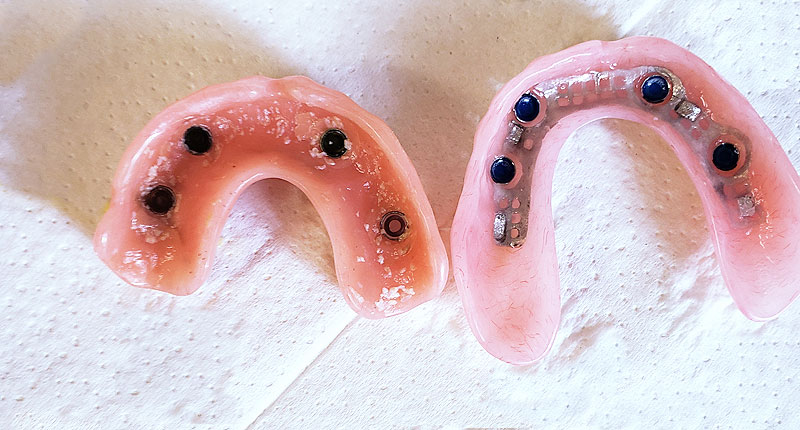Removable Dentures on Implants
Your Most Secure Smile
Removable dentures on implants are known for their stability and staying in place when you eat or chew. For many patients, this is the answer to any of the challenges they have experienced in the past with conventional dentures. Along with added stability, removable dentures on implants can also provide support for the facial structures. This is especially helpful for patients dealing with bone loss in their jaw.
Patients love the ease and convenience of removable denture implants. They can be taken out to clean in much less time and with less effort than other denture options. Not to mention, snap-in dentures tend to be much more cost-effective than fixed dentures on implants—in many cases, about half the cost!
We’re excited to walk you through this denture option and answer any questions you might have. Call us today for a free consultation: 253-478-2163
Benefits of Removable Dentures on Implants
- Lower cost than other options
- Implant overdentures can be quickly and easily removed for cleaning and maintenance
- Supports the facial structures and fills in areas where bone mass may have been lost


Schedule a FREE Consultation
Frequently Asked Questions
Are implant-supported dentures removable?
They can be! Removable dentures on implants or “snap-in dentures” can be taken out easily by the patient for cleaning and maintenance. Alternatively, dentures can be permanently fixed to implants. This is a more expensive option and they can only be removed by your dentist or denturist for cleaning.
How much do implant-supported dentures cost?
Factors such as how many implants are placed, how many teeth are on your denture, and the material used for your dentures will affect the cost of implant-supported removable dentures. Call us today to book a free consultation to get a more detailed cost estimate.
How many implants are needed for the upper jaw?
Removable dentures on implants in the upper jaw require four implants, and up to a maximum of eight for most patients. For the lower jaw, because the bone is more solid, some patients only require two implants, but it tends to be between two and four, up to a maximum of eight.